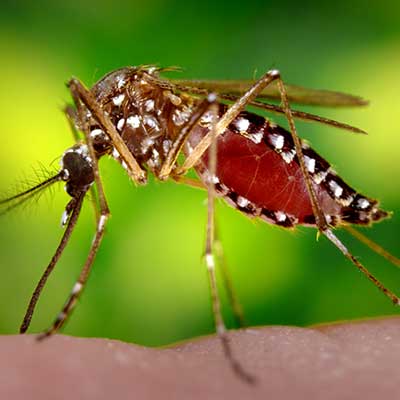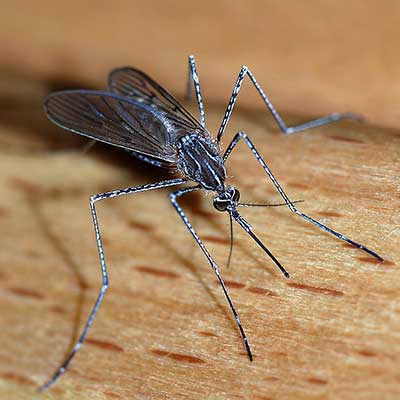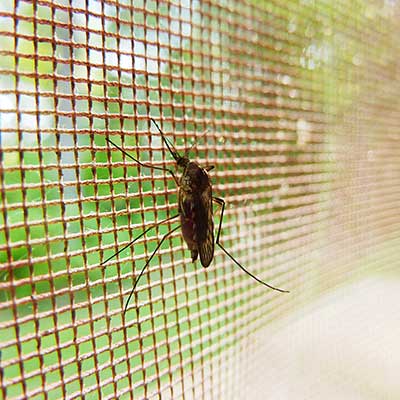Itching to Learn About Mosquitos
Week of June 13 – June 19, 2021

As I was having lunch by the pond yesterday, I felt a prickle on my arm. I looked down, and there was a mosquito having lunch with me…only my blood was the lunch! Irritated, I waved my pesky, uninvited guest away. But then I started to wonder about these little flying insects. Many of us hate mosquitoes because of their itchy bites, high-pitched buzzing, and infamous ability to transmit deadly disease. How much do we really know about the lives of these little creatures?
The common name mosquito is Spanish for “little fly”, which is an apt description since mosquitoes belong to the group Culicidae: a family of small flies with over 3,500 species. Like other true flies, mosquitoes have one pair of wings and one pair of halteres. Halteres are tiny club-shaped organs that help the mosquito to maintain balance during flight. Mosquito wings, unlike other flies, have tiny scales on them.
You may feel personally attacked when a mosquito bites you, but remember that with so many different species, mosquitoes also have many different hosts. Some species of mosquito consume the blood of amphibians, reptiles, birds, and other mammals such as dogs and horses. Did you know that only female mosquitoes consume blood? They do this with a long, specialized piercing-sucking proboscis. Male mosquitoes do not bite nor consume blood, and instead drink nectar and plant juices. Males are also differentiated from females by feathery antennae.
Unfortunately, in certain areas of the world, mosquitoes are notorious for their ability to transmit (vector) disease, such as the Zika virus and protozoans that cause malaria. In Central New York some mosquito species can transmit West Nile virus and eastern equine encephalitis. Although these diseases are rare, it is still important to prevent mosquito bites when possible. To avoid being bitten, there are steps you can take to make yourself less attractive to mosquitoes, such as wearing light-colored clothing, using insect repellent, wearing long-sleeves and long pants, moving quickly through warm, moist habitats when possible, and avoiding peak mosquito times (dawn and dusk).
Even though mosquitoes suck our blood and can transmit infectious diseases, remember that many other creatures (such as bats and dragonflies) eat mosquitoes and even depend on them to survive. While mosquito biocontrol is important, it is equally important to respect food webs and ecological processes. Also, let us remember that mosquitoes are living beings trying to survive like any other. The more we understand them, the better we can stay safe from transmitted diseases, the more easily we might coexist with them, and — perhaps — we might even foster inherent respect for these little flies.





